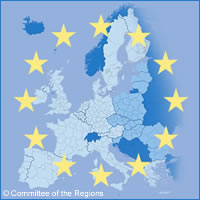FP5 contributed to European cohesion, claims Busquin
The Fifth Framework Programme (FP5) for research contributed to European cohesion and the Sixth Framework Programme (FP6) and European Research Area will also benefit Europe's less favoured regions. This was the message from EU Research Commissioner Philippe Busquin, speaking at a conference on the role of the regions in Milan, Italy on 21 October. The Commissioner encouraged Europe's regions to make the most of their strengths and not to exaggerate their weaknesses: 'All regions have assets, areas of excellence which can support their development.' He also emphasised that all regions will benefit from the initiative to create pan-European networks, and from the pooling of strengths, not only the most developed regions. 'This positive effect is already visible in the current European research programmes. The selection of projects is based exclusively on excellence: there are no cohesion criteria. And yet, the Fifth Framework programme for research had a positive effect on cohesion,' claimed Mr Busquin. In the year 2000, the four 'cohesion countries', Greece, Spain, Ireland and Portugal, made up 16 per cent of Member State participants in FP5 even though those countries are only home to 11 per cent of the EU's researchers. These countries also profited financially, receiving 13 per cent of Community contributions while only contributing five per cent themselves. Mr Busquin believes that the benefits for less wealthy regions will be even greater in FP6. 'My conviction is that the new instruments will serve the regions even more than the current Community projects,' he said. The first step is to make the regions more aware of the importance of research, and then to encourage the moving away from regional research priorities towards Community research objectives, said the Commissioner. 'The active participation of the regions is indispensable for the success of the European Research Area, [and] reciprocally, the European Research Area is indispensable for the prosperity of the regions,' concluded Mr Busquin.



